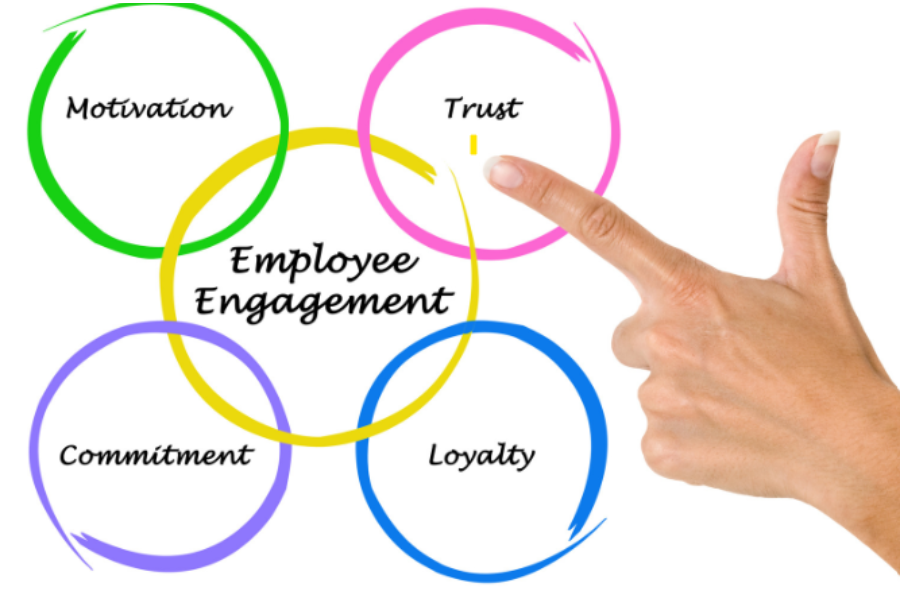Is Your Company Culture Fit for Purpose?
How effective is your culture?
Company culture seems to be something that everyone has heard of, but few people understand. Businesses know that they need to recruit the right personalities, support them with the right resources and tools to do the job, and empower their employees to create a productive workforce. However, they're not always sure how to combine those elements into a cohesive culture.
Essentially, an organisation's "culture" refers to how people feel when they go to work each day. It's the atmosphere within an office or equally a wealth management company that motivates everyone to do their best.

Often, company culture determines how team members interact, how they achieve their goals, and how outsiders feel about a firm. The question is, how do you define and optimise the culture in your business?
Why Does Company Culture Matter?
Company culture is more than just a buzzword. It can be the key to wellness in the workplace, a way to reduce employee turnover, and a strategy for stronger brand reputations. In fact, worldwide business leaders often identify culture and corporate strategy as equally important to success.
Research indicates that the atmosphere in a business can have an impact on everything from market share to stock prices. One study from the Columbia Business School found that:
-
Only 15% were already happy with their firm's culture
-
More than 50% felt that culture influences profitability, creativity, and productivity in the workplace.
On a basic level, a culture is a way to define expectations, and encourage lucrative staff behaviour. When hires know; what their employer stands for, what they value, and where they are heading they can adapt their working practices to meet those guidelines. For instance, a financial manager working in an environment built on punctuality and accuracy will be highly accountable.
Company culture gives your business focus and lays the foundations for developing high-performing teams.
What are The Keys to a Successful Company Culture?
To establish a company culture that engages and inspires hires, business leaders need to help their employees understand the company they are working for on a deeper level. Here are just some of the most crucial components of establishing a successful culture.
1. Vision
All great ventures start with a solid goal. A vision or mission statement is an organisation's way of letting their shareholders and staff members know where the firm is heading. It gives the enterprise a sense of purpose, and the team something to get behind.
When people know where they're going, they have a compass to orient each decision they make on behalf of their employer. A good vision statement can help managers to keep their team on track no matter what happens. The great news is that your vision doesn't have to be complex to be effective. Something as simple as Oxfam's "World without poverty" is enough to focus people towards a shared goal or Googles, “Organize the world’s information and make it universally accessible and useful.”
2. Values

While your vision tells people what you want to accomplish, your values determine how you want your employees to reach those goals. Values highlight the actions and mindsets that are important to a company. Using an earlier example; a financial firm might appreciate staff members who are good using systems and processes, are accurate in their work and take responsibility for their actions. This would mean that “accountability” would be ideal as one of their values.
Think about the things that keep your business moving smoothly and implement those elements into the core of everything your business does. Remember, don't go too over-the-top with your values. Four or five essential ones are more than enough to guide your employees without overwhelming them.
Once you've decided which ideas matter most to your business, recruit against these values and make sure you share them with everyone you employ, all the way from the onboarding process, through to future training strategies and annual reviews. This will help to ensure consistency.
3. People
You can't have a great company culture without the right people. A high-performing team is built on individuals who share the same values and vision as your organisation. That's one of the reasons why so many businesses are now working together with recruitment agencies to find candidates that not only meet their technical standards but feature important personality traits too.
While a good recruitment agency can help you to find people who fit your image of the perfect culture, it's important to explain what you expect during interviews and make sure that your interview process looks to identify if the values a candidate espouses match your company values. When you do this, you will reduce your risk of making the wrong recruiting decision.
4. Engagement

Finally, engagement will always be a critical part of company culture. If you want to stop your hires from leaving and keep everyone working to their full potential, then you need your team to be engaged. Fortunately, the underlying rules of engagement are the same today as they were in 1990 when the Boston University highlighted three ways to engage employees. Staff want to feel:
-
Safe: People want to know that their work is valued and respected. Regular feedback is a great way to ensure that everyone feels like a vital part of the team.
-
Important: Today's hires want to know that their work is making a difference. The values and vision you established for your brand will help to accomplish this.
The perfect company culture isn't a one-size-fits-all strategy, but with a little planning, you can create a focused, motivated, and dedicated team.
About First2Recruit
First2Recruit, are an owner managed recruitment consultancy providing a full recruitment service including; permanent and FTC positions in Accountancy Practice and Insolvency across the UK.